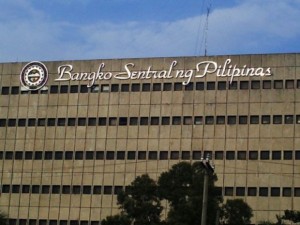
The Bangko Sentral ng Pilipinas (BSP) this week directed universal, commercial, and thrift banks to regularly report the licenses acquired from the Securities and Exchange Commission (SEC) and other regulators that allow for participation in financial markets.
“Enhanced reporting requirements will enable BSP to keep track of what banks have been authorized to do with respect to underwriting, brokering, dealing and transfer agency functions,” the BSP said in a statement on Thursday.
Banks will also be required to submit lists identifying personnel that are licensed to do securities trading.
Since the 1980s, the Philippines has allowed the creation of so-called universal banks, or lenders that combine investing and securities trading with traditional banking functions of deposit-taking and lending to businesses and households.
These banks, however, are still required to secure licenses for securities trading from the SEC and the Bureau of the Treasury.
The BSP said the new reporting initiative underscored the importance of the licensing function to the management of risks that may be faced by banks from their securities operations and the protection of the investments of their customers.
“We want to know what banks are doing aside from the traditional business,” BSP Governor Amando M. Tetangco Jr. told reporters.
He said these new reporting requirements would give the regulator a better view of the operations of the institutions under its supervision.
Tetangco added that this was in line with the goals of the inter-agency Financial Sector Forum, an entity composed of representatives from the BSP, SEC, Insurance Commission and the Philippine Deposit Insurance Corp.
The four agencies coordinate with each other to ensure the stability of the financial system by looking into areas in the industry where regulatory functions intersect to find possible sources of stress.
Investment banks’ main business is assisting clients raise capital from financial markets, either acting as agents or underwriters for the issuance of debt securities. These institutions also help clients during mergers and acquisitions.
Tetangco said the BSP was not looking out for any particular risky activity in the securities trading businesses of local banks.
The country’s universal and commercial banks corner about 90 percent of the financial industry in terms of assets and resources under management.